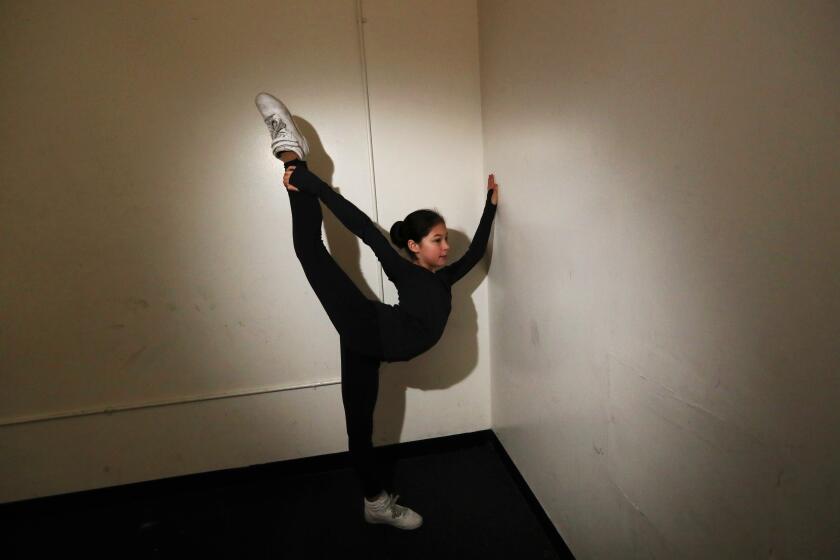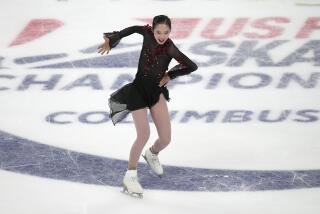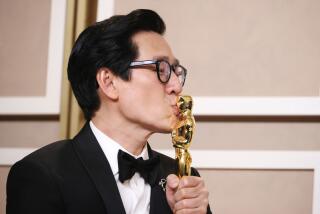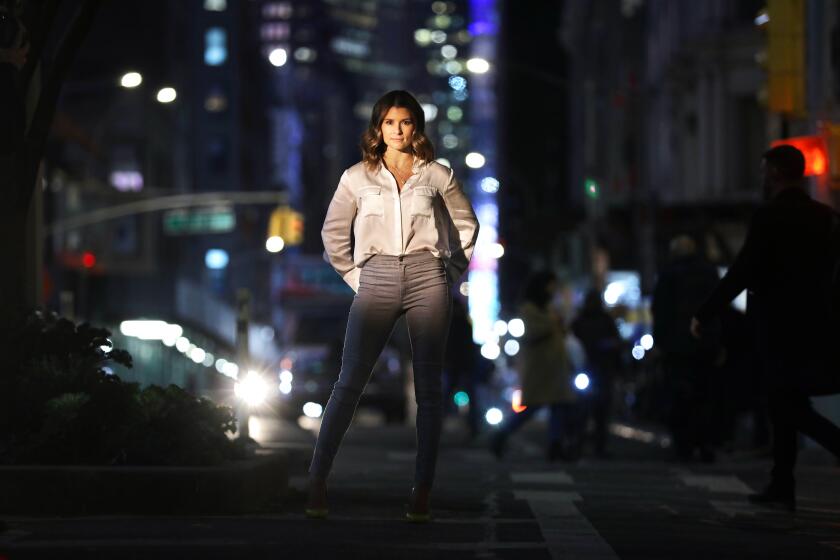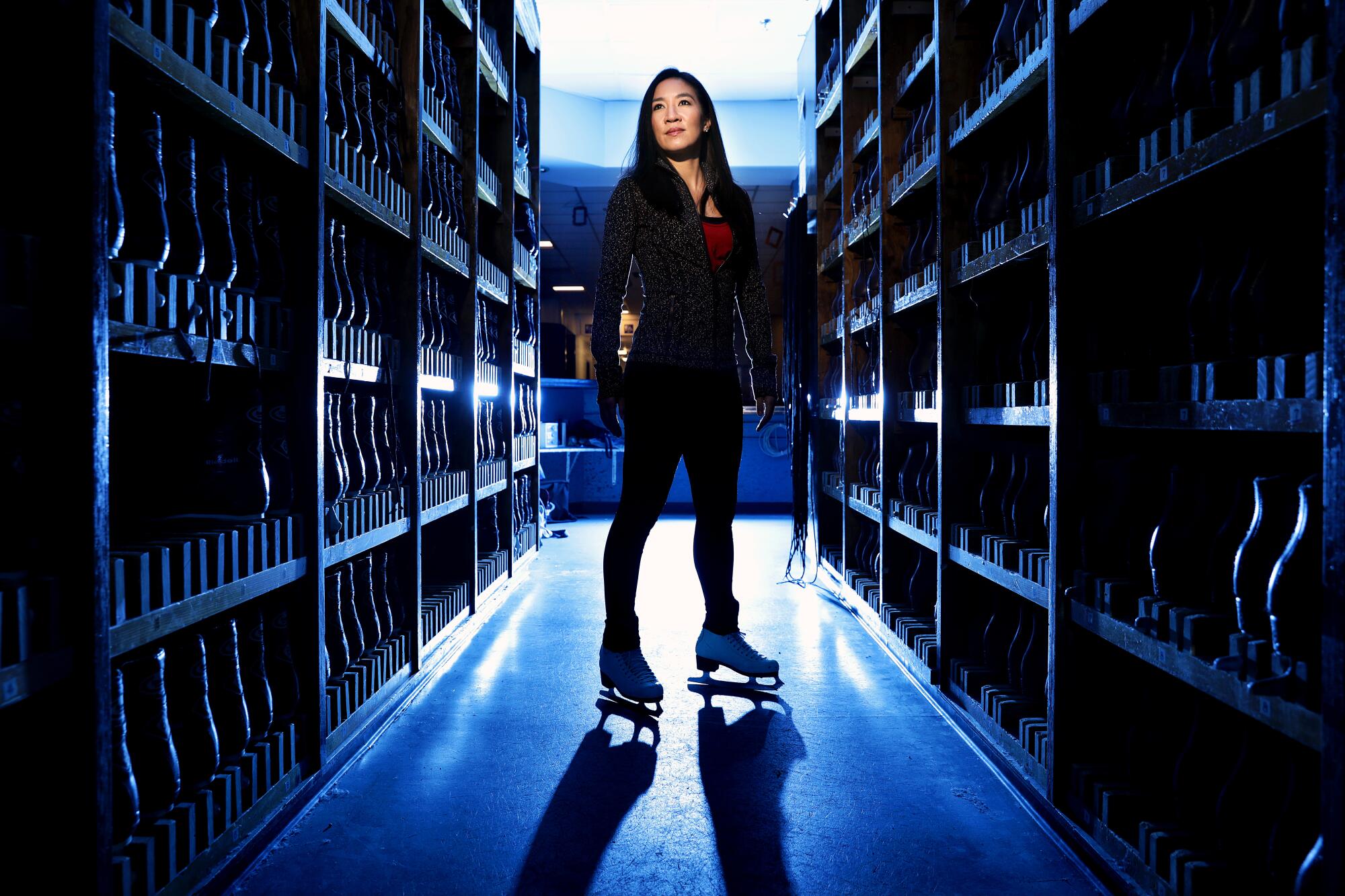
- Share via
Michelle Kwan once stood where Alysa Liu is now, on the brink of a potentially brilliant figure skating career.
It doesn’t seem so long ago that Kwan, the daughter of immigrants who left Hong Kong to raise a family and run a restaurant in Torrance, emerged as a sweet, enchanting girl who could out-jump older figure skaters with astonishing ease. As she matured, she displayed a rare ability to turn two or four minutes of music into a symphony of art and athleticism.
Kwan was singular, winning nine U.S. championships, five world titles, and two Olympic medals.
Liu, 14, is still too young to compete internationally at the senior level, so it’s impossible to predict whether her career will compare to Kwan’s. But Kwan, who is now 39, is familiar with the path Liu is following and wishes her well.
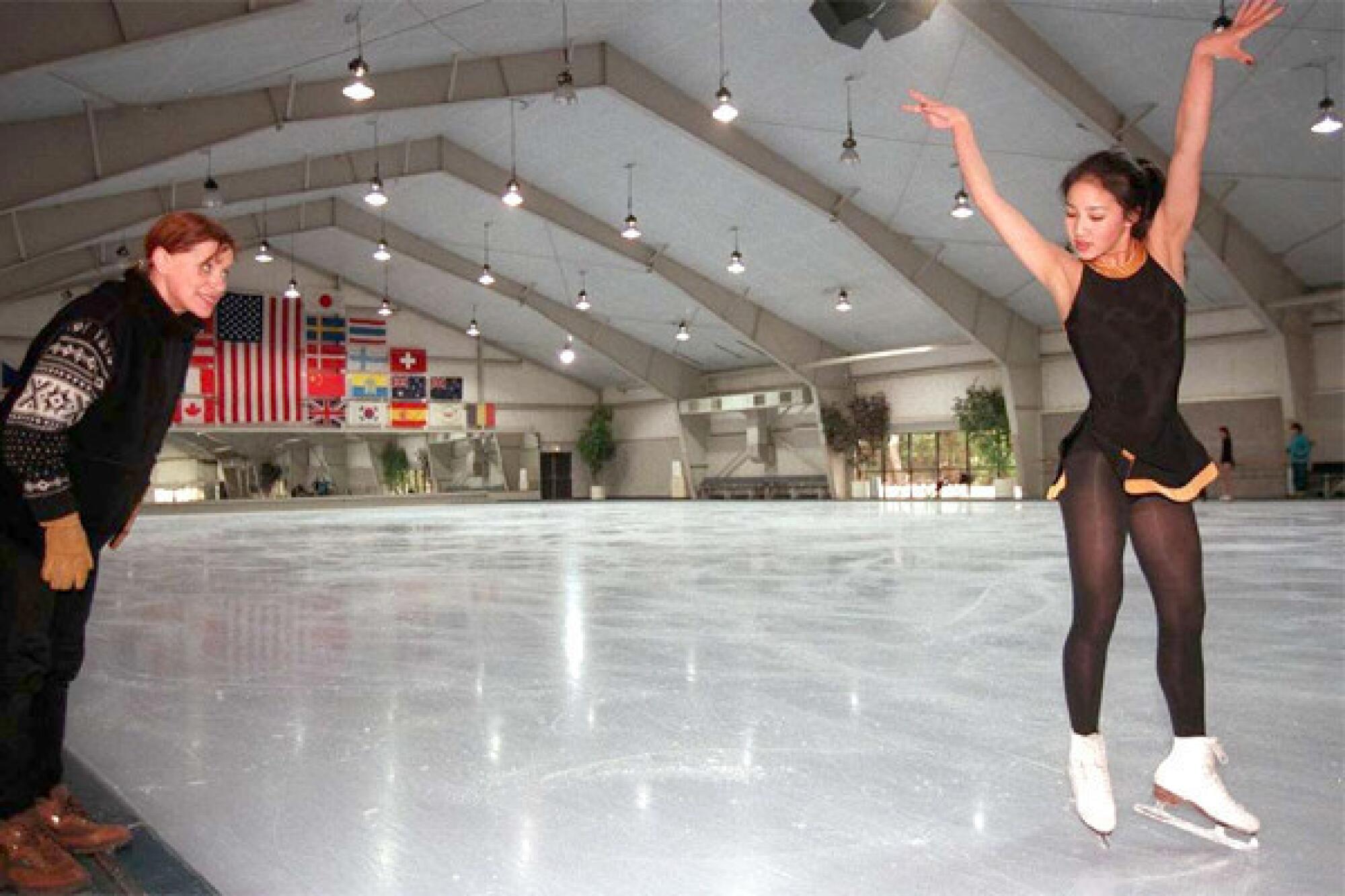
“She’s what, 14 now? You can’t expect her to be a woman. To have that maturity and finesse, I think, comes over time,” says Kwan.
Liu’s father has said that watching Kwan inspired him to introduce his daughter to figure skating, and he’s not alone in admiring her competitiveness and class. Kwan is proud that she had a part in drawing youngsters such as Liu to the sport.
“I always knew the responsibility of being looked up to by young girls and boys who watched me closely, watched my every move. That was before social media, before Instagram stories and stuff,” Kwan says. “I know that they watched every interview and it kind of felt like they knew me, which they did. The backstory of my family and my upbringing, I think, really connected with the Lius. I feel very honored that they thought of me as somebody to look up to.”
Alysa Liu is a two-time U.S. figure skating champion, but the teenager has her sights set on an Olympics medal.
Kwan had won attention as the 1993 world junior champion but wasn’t well known when she competed at the 1994 U.S. championships in Detroit, which would determine the team for the Lillehammer Olympics. After the furor caused when Nancy Kerrigan was clubbed on the knee — an attack commissioned by rival Tonya Harding’s husband — Kwan finished second to Harding at the event. Kerrigan, unable to skate, was awarded an Olympic berth and Kwan, then 13, became an alternate. (Harding, threatening to sue U.S. figure skating authorities, kept her spot but finished eighth at the Winter Games. She was later stripped of her U.S. title.)
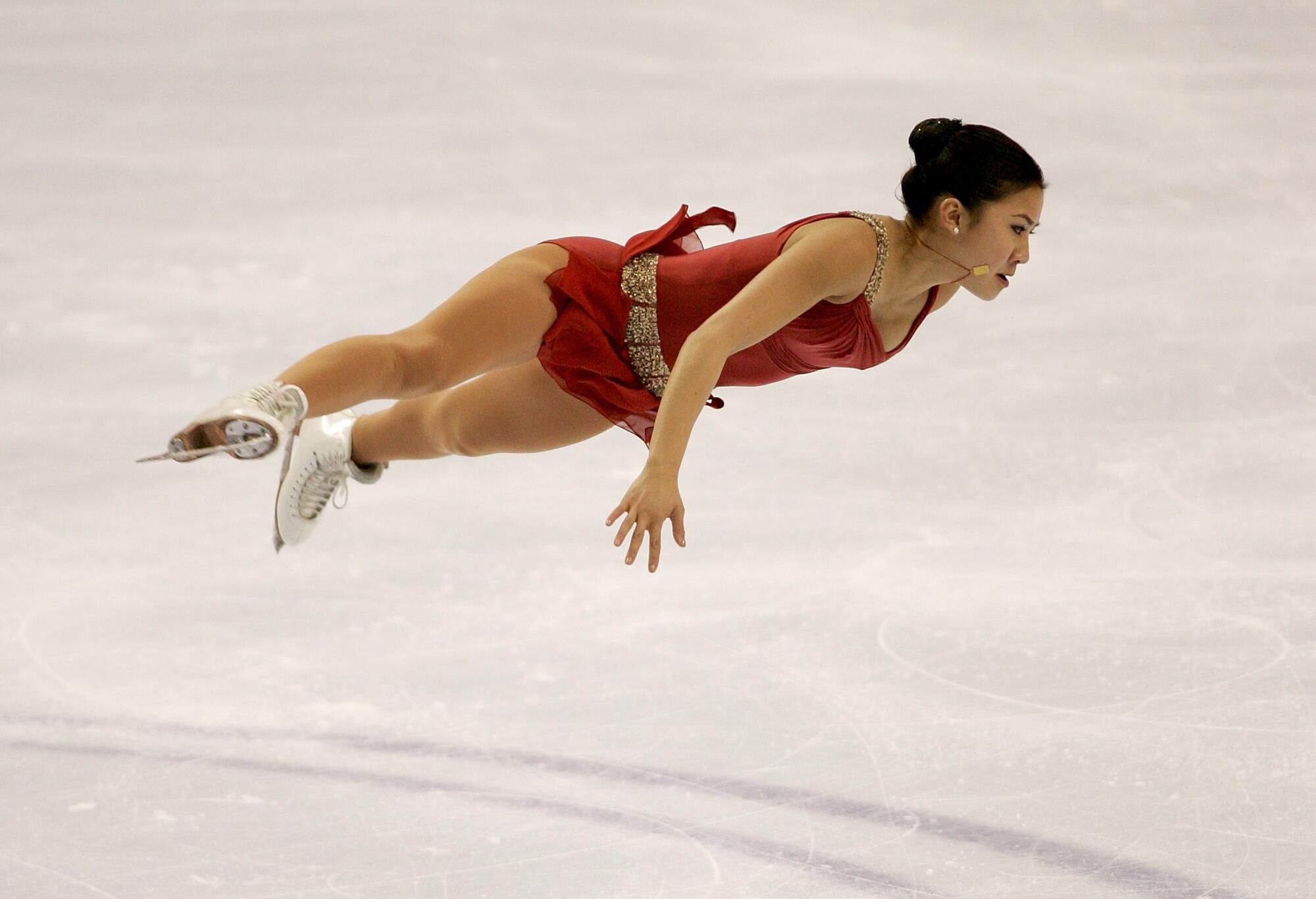
Kwan returned to Olympic ice in 1998 but was outdone by fellow American Tara Lipinski’s technically strong program and took home a silver medal. Given another chance in 2002, Kwan uncharacteristically fell in her long program and finished third behind American Sarah Hughes and Russia’s Irina Slutskaya. Kwan’s poignant performance to “Fields of Gold” in the post-competition exhibition left spectators in tears and rivaled any of her triumphant skates.
Her longevity, excellence and perseverance in the face of crushing defeats have contributed to her appeal.
“You hope that you made an impression and an imprint, a positive impact on people,” she says. “I kind of expressed the journey that I was on, whether it was a good journey or an emotional journey or a sad one, I was never afraid to emote. I feel like the people who partook in that journey experienced a lot of emotional moments during those 20 years with me, and looking back, I was a part of their lives.”
Kwan says she had no strategy for her post-skating career. “It was like, now what? Finding another passion.” And she did. Kwan got a degree in international studies from the University of Denver and a master’s degree from the Fletcher School of Law and Diplomacy at Tufts University before being appointed the first U.S. diplomacy public envoy by then-Secretary of State Condoleezza Rice. Kwan later worked on Hillary Clinton’s presidential campaign and is now based in Philadelphia as the director of surrogates for Democratic presidential hopeful Joe Biden.

She skates occasionally at East West Ice Palace in Artesia, which her parents own, and where she briefly met Liu. She keeps up with the skating world via social media and marveled at Liu’s ability to land quadruple jumps.
“I never really thought that it would be possible to see it done with such ease and perfection,” Kwan says. “Seeing it across the board, watching Nathan Chen, the repertoire of quads is scary. It’s like watching Cirque du Soleil, watching contortionists. It’s just astonishing.”
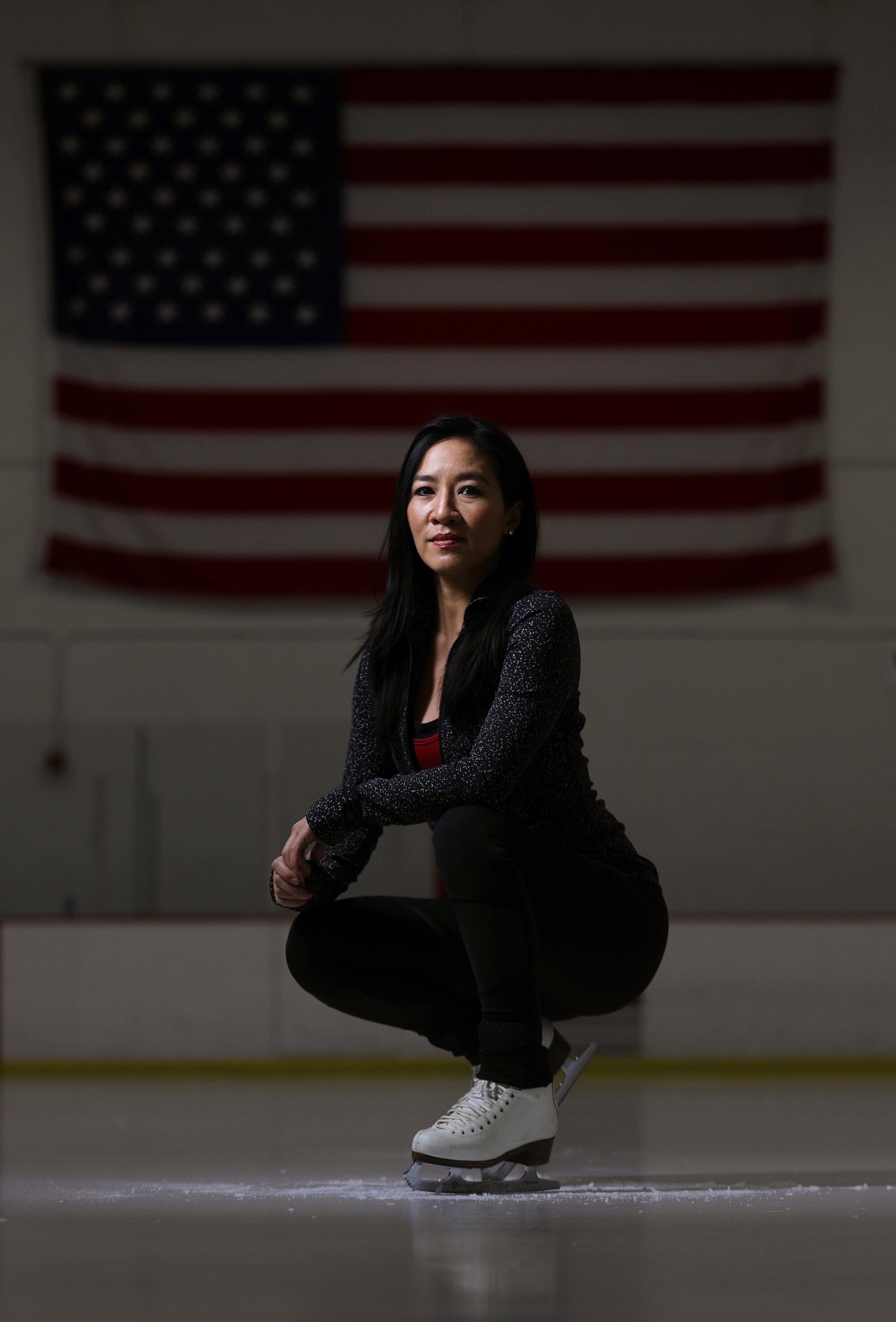
The Times’ video series examines challenges in women’s sports.
More to Read
Go beyond the scoreboard
Get the latest on L.A.'s teams in the daily Sports Report newsletter.
You may occasionally receive promotional content from the Los Angeles Times.
